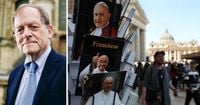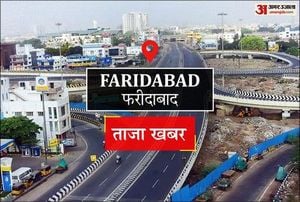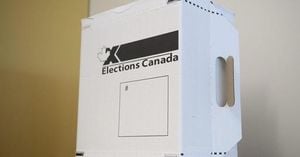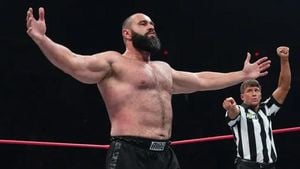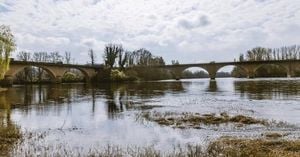The Vatican is preparing for a significant transition as it readies for the funeral of Pope Francis, who passed away recently. According to reports, the funeral is set to take place around the weekend of April 26-27, 2025, or early the following week. This event marks a pivotal moment in the Catholic Church, as it will not only honor the late pontiff but also initiate the process of electing his successor.
In line with the detailed plan outlined in the document known as Universi Dominici Gregis, the Vatican is meticulously organizing the funeral proceedings. This document serves as a guide for the election of a new Pope and ensures that the transition is handled with the utmost respect and dignity. As preparations unfold, the public can expect a solemn ceremony reflecting Pope Francis's wishes for a simple and unadorned farewell.
Notably, Pope Francis has expressed his desire to be buried outside Vatican City, making him the first pope in a century to choose such a resting place. His body will lie in state at St. Peter's Basilica in the days leading up to the funeral, allowing the faithful to pay their respects.
Following the funeral, the election of a new Pope will officially commence. This process is expected to begin between fifteen and twenty days after the Pope's death, as outlined by the Vatican's protocols. While preparatory meetings will occur beforehand, all cardinals, including those over the age of 80, will participate in discussions to set the stage for the conclave.
The actual conclave, where cardinals gather to elect the new Pope, will involve a maximum of 120 participants. However, it is anticipated that this number may be higher this time around, as all cardinals under the age of 80 are eligible to vote. Among those eligible are two Belgian cardinals: Jozef De Kesel, the former Archbishop of Mechelen-Brussels, and Dominique Mathieu, the Archbishop of Teheran-Ispahan in Iran. Despite being relatively unknown in Belgium, Mathieu's participation underscores the global diversity within the College of Cardinals.
As the conclave approaches, questions arise about the potential candidates for the papacy. Several names have emerged, including Italian Cardinal Matteo Zuppi, who is associated with the Sant’Egidio community, and Pietro Parolin, the Vatican's Secretary of State. Other prominent figures include Cardinal Luis Antonio from the Philippines and Peter Turkson from Ghana. Each of these candidates brings a unique perspective to the table, reflecting the diverse backgrounds and experiences within the Church.
The election process itself is expected to be as politically nuanced as any major political election, such as that of the President of the European Commission. While there are no official factions within the conclave, certain cardinals may hold more sway due to their experience or connections within the Vatican. Historically, a two-thirds majority is required to elect a new Pope, which often leads to negotiations and compromises among the cardinals.
Interestingly, the question of whether the next Pope could be from Africa has gained traction in recent discussions. Peter Turkson's candidacy has sparked media interest, as he represents a potential shift in the papacy's demographic landscape. However, experts caution that if an African Pope were to be elected, he might lean towards more conservative ideologies, contrasting with the progressive image often associated with the papacy.
As the world awaits the outcome, the conclave is expected to last three to four days once it begins. The traditional methods of signaling decisions—burned ballots and white smoke—will still be employed, maintaining the ceremonial mystique of the papal election process. This enduring tradition serves as a reminder of the historical significance of the papacy and the solemnity with which these proceedings are conducted.
In conclusion, the preparations for Pope Francis's funeral and the subsequent election of a new Pope are unfolding in a manner that reflects both the late pontiff's wishes and the enduring traditions of the Catholic Church. As the faithful gather to honor Pope Francis's legacy, the world watches closely to see who will emerge as his successor and how they will guide the Church in the years to come.
